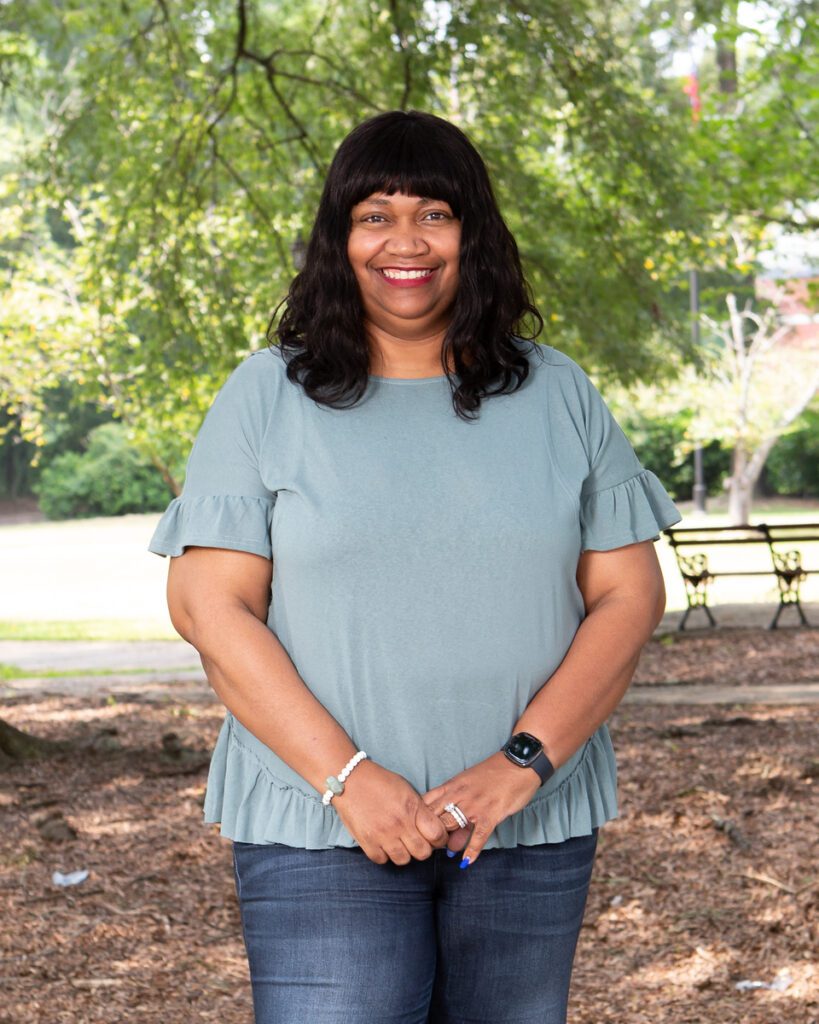When I was in college, I decided my path was to pursue a career in counseling. I was drawn to counseling because I’d received it as a teen, and it had a huge and positive impact on my life.
I grew up in a single-parent home. My mom was the sole provider and sole caregiver. My dad was a musician, and so he traveled a lot, and he just wasn’t there, neither physically nor emotionally. His absence fostered a lot of resentment and anger. As teens, we don’t always know how to talk about our feelings, and so we just act out. I was acting out, which led to a school counselor reaching out to me. I would go to her office once, sometimes twice a week, and just talk about how angry I was.
I also got to talk about a lot of anger and unprocessed pain I experienced due to feeling like I was often the caregiver for my mom, as she experienced depression due to being the only parent and the sole breadwinner of the household.
Having a space that was nonjudgmental, where I could just be transparent and share, where it was okay to not be okay, where it was it was okay to be angry and frustrated, fostered a desire in me to say, I want to do this. I want to give that type of hope to someone else. That drew me into the field of counseling. I completed my undergrad, went on to get my master’s.
What drew me more into wanting to learn more about OCD specifically was seeing the struggles that a loved one of mine (who I will refer to here as J.D.) had. Seeing how he suffered due to it being undiagnosed and untreated made me feel that people with OCD were being brushed aside.
Witnessing OCD Struggles
J.D. was often called “picky” or “overly sensitive” when he was growing up. His behavior was considered “strange” and he kind of got labeled as a problem child. That had a big, negative effect on his self-esteem.
Unbeknownst to any of us at the time, he was living with OCD. In our community, mental health was not something people talked about or even really understood. As he grew older, J.D.’s symptoms began to have a more pronounced impact on his life and day-to-day functioning. With no one who understood what was going on in his life, he withdrew and became a shadow of the fun-loving guy he once was.
He wasn’t officially diagnosed until many years later, well into adulthood. He saw a counselor and finally found out that what he was experiencing had a name: OCD. But while the diagnosis was accurate, the treatment was not specific. It wasn’t exposure and response prevention therapy (ERP), which is the gold standard treatment for OCD; it was general talk therapy. As is so often the case, talk therapy didn’t help matters at all. He was invited to talk about his anxiety, and it exacerbated things.
Becoming Familiar With ERP
The first time I really heard of ERP was when I saw how well J.D. responded to it once he was finally was able to connect with someone who was trained in it. After years of having his life negatively impacted by OCD, he started getting better, and he started making some positive changes.
Does he still have rough moments sometimes? Yeah, absolutely! But he uses his resources. He’s even developed his own support network of friends that also have OCD. I get emotional thinking about this because it’s just really nice to see J.D. really feel like he is accepted, and he has that hope.
Through both my work life and my personal connection with OCD, I saw that this was an underserved community. This grew my passion for wanting to change that, and here I am!
Helping an Underserved Community
My official ERP training came with NOCD. My prior clinical training was at the community behavioral health center, where I worked for 18 years. It was not the work culture there to be focused on anything outside of schizophrenia, depression, bipolar disorder, etc. Even today, I expect I went back there and said exposure and response prevention therapy, I’d probably get a “What?” in response.
I grew up seeing the symptoms of OCD but not knowing what it was. Even when I learned about the condition as part of my master’s program, I still didn’t get an idea of the degree that OCD can impact people’s lives and that it’s often co-occurring with other things. That was a revelation for me.
Some people have concerns about the work that comes with committing to ERP. They are worried that it’s going to be difficult and challenging. I always say that what they’ve been doing is already difficult and challenging. Treatment might start off feeling like hard work, but just showing up and putting forth your best effort, you’ll turn that hard work into hope, and that hope will turn into confidence that you have the tools to live your life on your own terms.

